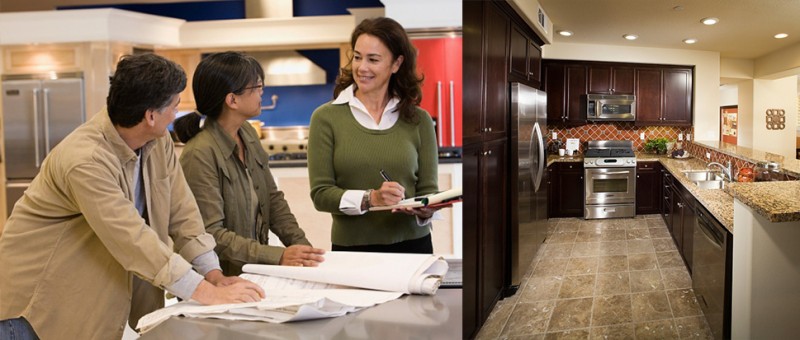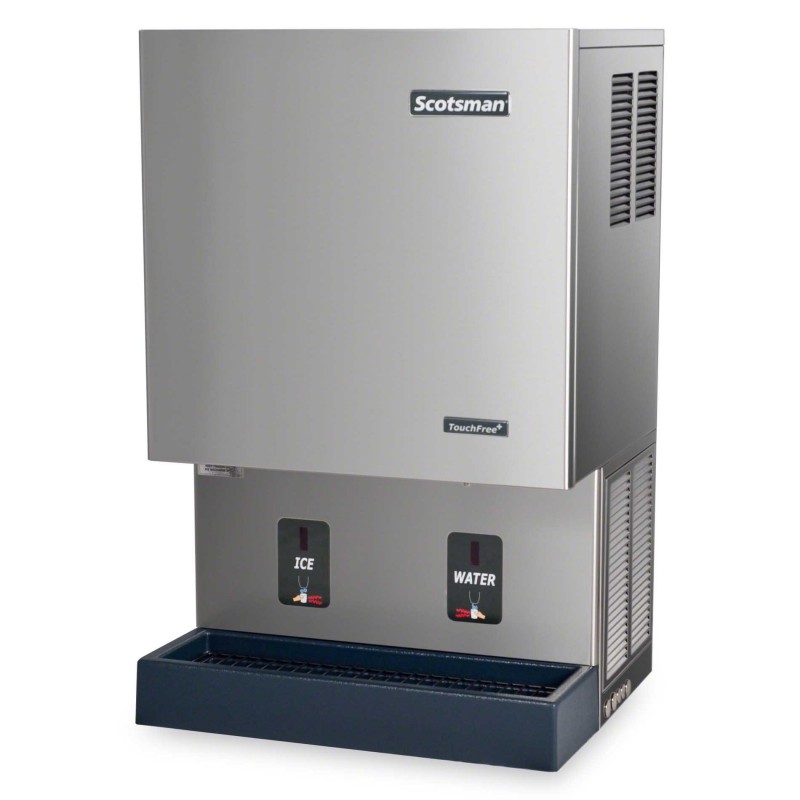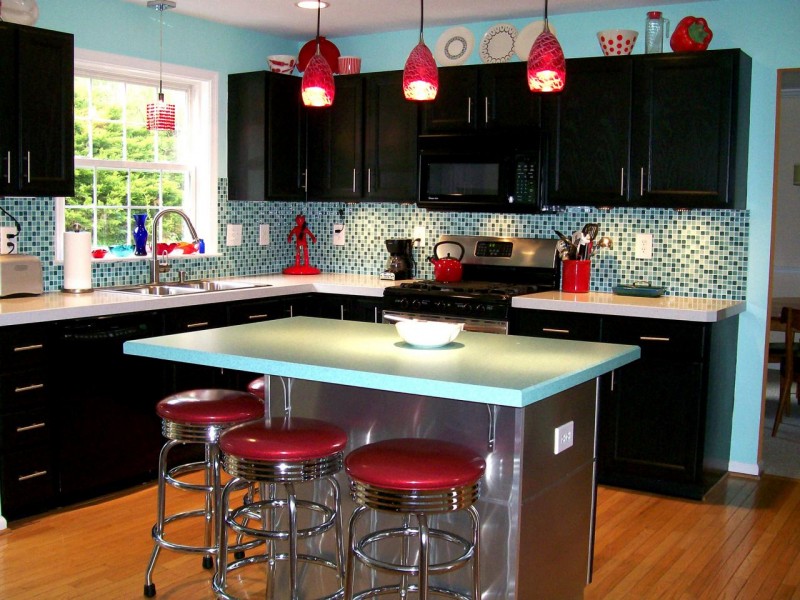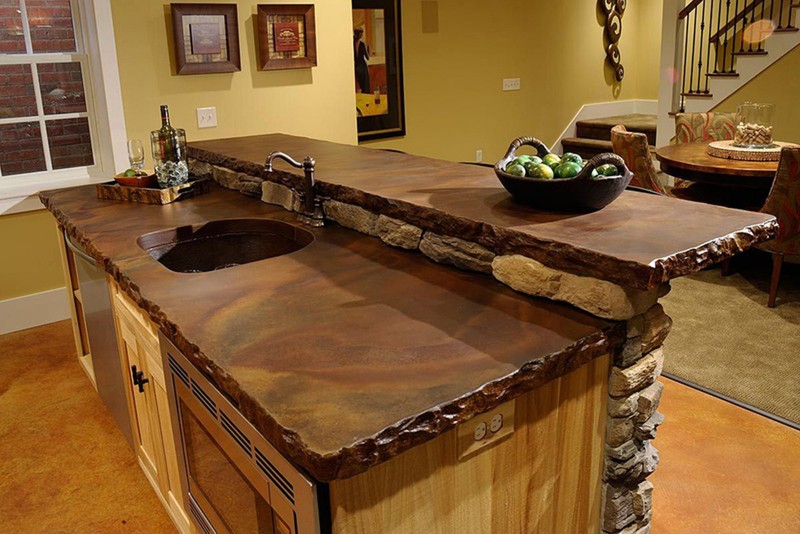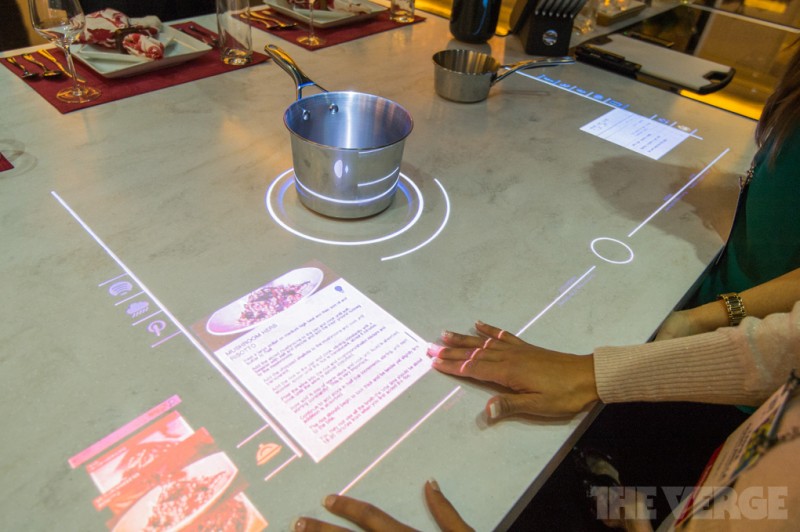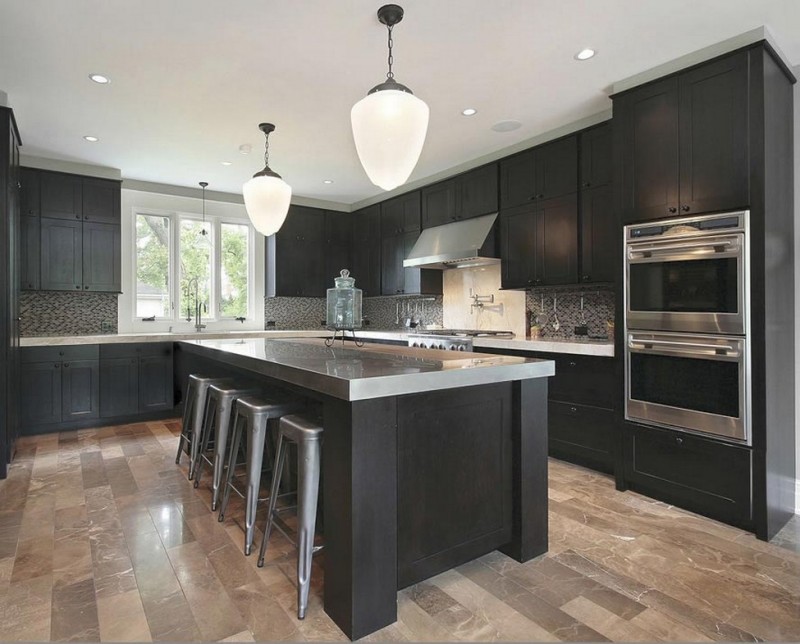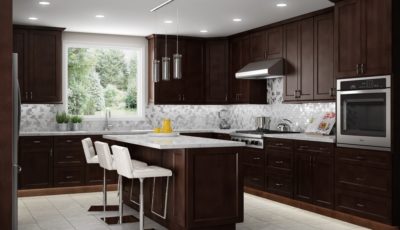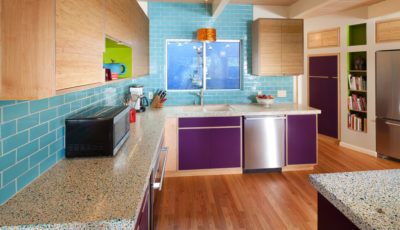6 Things to Consider Before Remodeling Your Kitchen
One of the most effective ways to increase both the enjoyment of your home and its value is by remodeling your kitchen. Cooking can become more enjoyable and more efficient when you have a space that is easier to work in. Homeowners can see an increase in the value of their home by several thousand dollars just by remodeling their kitchen. Before you decide to undertake such a project, however, there are a number of factors to consider.
1. The first step in the process before your kitchen remodeling project is to set a budget. Determining just how much money you have to spend before you start your project will influence the choices you make for your kitchen remodel. This is a great time to put together pictures from magazines, books or online websites that can give you an idea of the type of looks and features you want. It’s also a good idea to draw or sketch your current kitchen layout. Be sure to include where windows, doors, outlets lights and plumbing are located. These elements will all have to be taken into consideration before undertaking your project and can greatly influence the price of your project if anything needs to be moved.
2. If you choose to leave your current layout with everything such as sinks, appliances and electrical wiring mostly in the same position, just rearranging kitchen cabinets can still increase the efficiency and flow. Moving doors or entryways is far less expensive than moving sinks and plumbing, for example. Also, think about whether you plan to add additional appliances such as ice makers, or grills, refrigerators or sinks. Every feature you add (or take away) according to current building code requirements can potentially mean more expense in terms of cost overruns for your project.
3. Kitchen cabinetry styles and materials can vary widely. Kitchen cabinetry is available in either prefabricated pieces at your local kitchen or home center or they can be custom built. Are you considering reusing your current kitchen appliances, or will you opt for newer, more energy efficient models? This can also affect the arrangement and potential layout of your cabinets.
4. The kind of counter tops you choose should depend both on your kitchen remodel budget and your own cooking style and needs. Granite or concrete counter tops may be very popular, but these can be expensive and require a very specialized type of installation and maintenance. Today, there are many options with a wide range of materials and prices. Some lower-cost options can also end up being easier to maintain than counters that are made from higher end materials.
source
5. If you are considering replacing your appliances as part of your kitchen remodeling project, be sure to look for the Energy Star label. Whether you are shopping for a new stove, refrigerator, dishwasher or ice maker, Energy Star labels show the estimated cost of running the appliance for an entire year. Your local utility or electric cooperative may also offer a rebate for each upgraded appliance or combination of appliances that you replace with more energy efficient ones.
Many newer kitchen appliances are also “smart”. A smart appliance can potentially communicate with other appliances in the home as well as with a home security system and even your smart phone or computer so that they can be operated remotely. Being able to preheat your oven a few minutes before you arrive at home can save time and help you to be more efficient.
6. Carefully consider the location of doors, windows and skylights in order to analyze the amount of natural light that you already have to work with in your kitchen. Natural light is best because it lessens the need for artificial light during daylight hours. If you want to increase the amount of natural light in your kitchen, install larger windows or doors that have more glass to let more natural light in.
Light fixtures for your kitchen can also be a part of your remodel. Many newer kitchen light fixtures make use of LED technology and are far more energy efficient. These lights, whether pendant lights or recessed lighting for example, are generally focused on task areas such as sinks, islands and counter tops. This type of focused lighting can make a kitchen space look and feel bigger. Under cabinet lights can also make the kitchen feel more warm and inviting.

